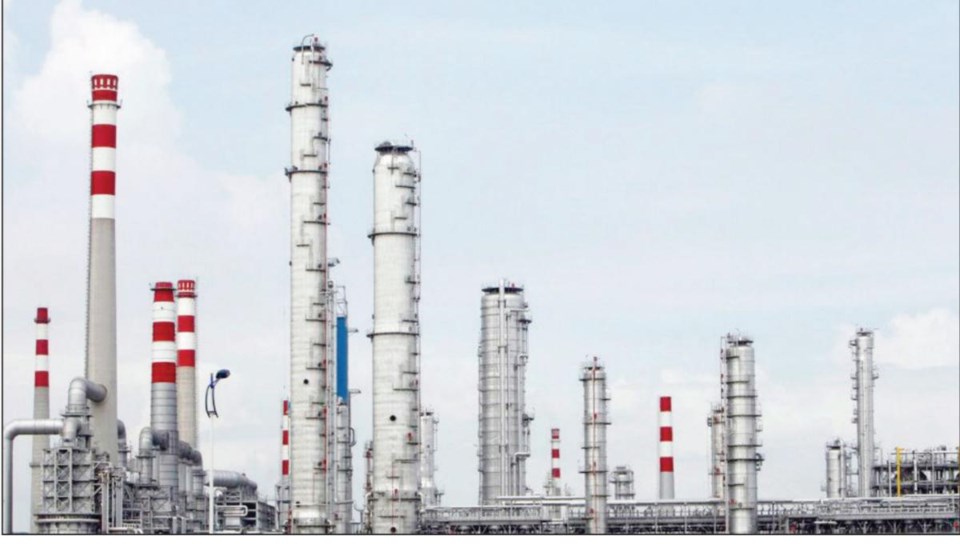A squeeze on oil supplies bound for the West Coast is sowing conflict between refiners on both sides of the border.
For nearly two years, the Canadian unit of California-based Chevron Corp. has had a tough time getting enough crude to run its 55,000-barrel-per-day refinery in Burnaby.
So in June it applied to the National Energy Board to designate the refinery a "priority destination" for crude shipped along Kinder Morgan's Trans Mountain pipeline, which hasn't been able to ship the amount of crude its customers have been demanding.
The NEB is set to hear Chevron's case on Jan. 15, but a U.S. firm that has a refinery in Anacortes, Washington, wants the NEB to put the proceedings on hold so that the energy regulator can weigh whether granting Chevron's request would break trade rules.
In a notice of motion filed to the NEB in late September, Texas-based Tesoro Corp. argues that if Chevron gets its way, it will harm competitors south of the border.
On Friday, one of Canada's biggest unions, the Communications, Energy and Paperworkers Union of Canada - which represents some 35,000 members in the oil and gas industry - called on the NEB to go on with the case despite Tesoro's opposition given the "precarious" state of the Burnaby refinery.
"It is outrageous that an American company is trying to use NAFTA rules to block a case that would allow Canadian crude to be treated in Canada," said union president Dave Coles.
"We have got a serious case of misplaced priorities if the NEB refuses to hear Chevron's request based on the fact that questionable NAFTA rules would take precedence on very clear Canadian interests."
In addition to Tesoro, BP, Phillips 66, Shell and U.S. Oil & Refining also have refineries in Washington state that rely on crude from the Trans Mountain line.
"Based on Chevron's application, there will be a $150-million-per-year benefit to Chevron if it succeeds in its [priority destination designation] application and a $191-million annual cost increase for the U.S. refiners as a group," Tesoro said. Giving Chevron first dibs would also be "substantially interfering in the competitive dynamics of a common cross-border refined products marketplace in British Columbia and Washington," Tesoro added.
In order to be deemed a priority destination, the Burnaby refinery must already be connected to the Trans Mountain line - which it is - and prove that there's not an economically feasible way to find crude from elsewhere.



